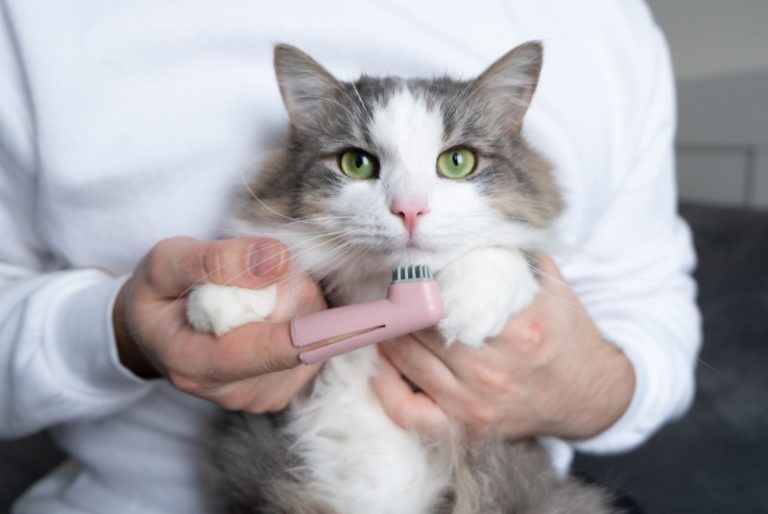Cleaning a cat’s teeth is one of the most important tasks pet parents can do to keep their pets happy, healthy and in top shape, and there aren’t many downsides to discussing cats and dentistry care. Regular cleanings are essential to prevent dental disease, which can be painful, make it difficult for cats to eat, and lead to a number of potentially serious health consequences.
Regular tooth brushing and professional cleanings can minimize the chances of cats developing periodontal disease and losing teeth as they age. Keep reading to learn more about the importance of cleaning your cat’s teeth.
The 6 benefits of cleaning your cat’s teeth
1. Prevents problems from developing
Dental disease begins relatively quietly with the build-up of plaque on the cat’s teeth, which can develop into tartar if not removed relatively quickly. Tartar that is allowed to remain irritates the cat’s gums, leading to gingivitis and eventually periodontal disease, which can lead to tooth loss and resorption.
Home dental care and professional cleaning are two of the best ways to prevent problems from starting and gaining traction.
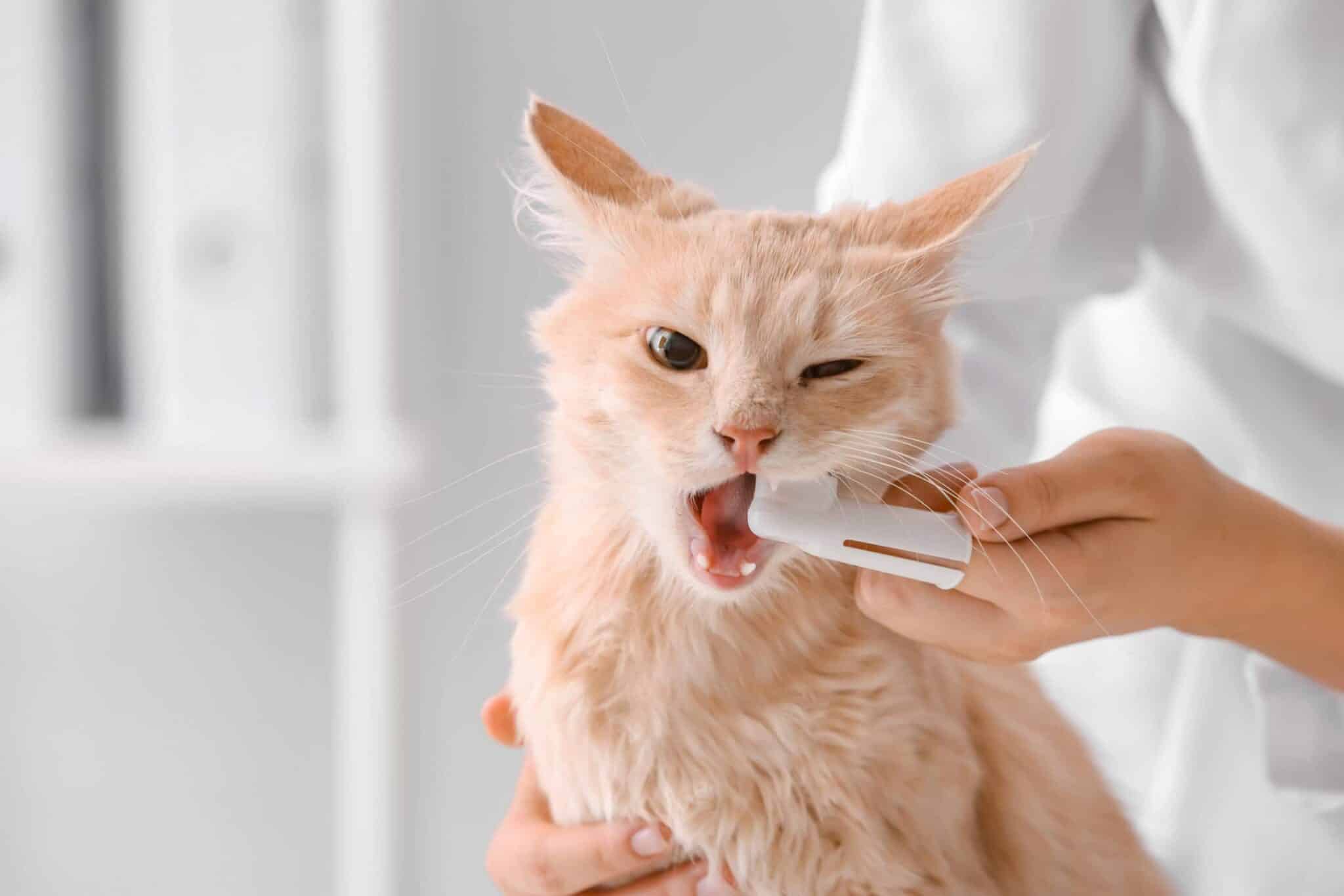
2. Improves the cat’s breathing
Cats suffering from dental problems often have bad breath. Although a slight odor is fairly typical, bad breath can be a sign that their teeth need to be cleaned more often. Their breath usually improves after a professional cleaning to get rid of built-up plaque and tartar.
3. Reduces the likelihood of certain chronic conditions
Keeping your cat’s teeth in top shape affects their overall health. Pets with gum disease and dental problems are at increased risk of developing conditions such as kidney and heart disease. These diseases are often chronic and generally worsen over time. many can only be treated rather than cured.
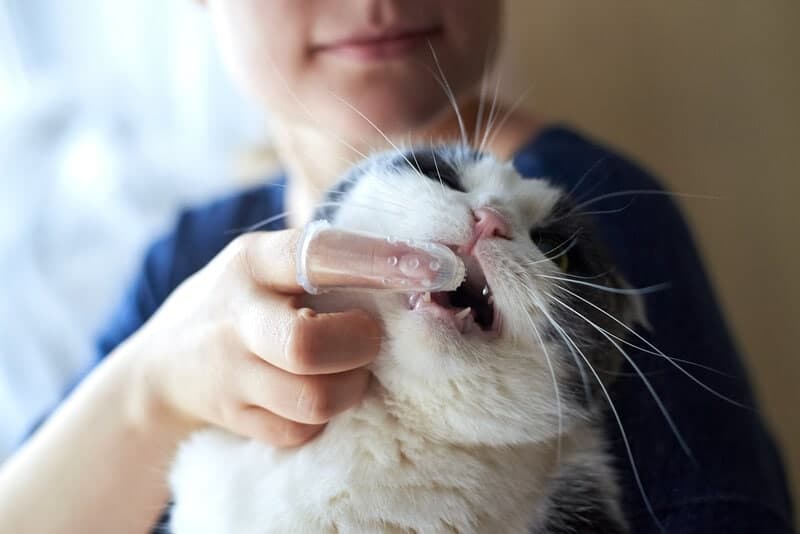
4. Reduces the risk of serious dental disease
Regular attention to the dental health of cats from the time they are young can go a long way in preventing problems from developing later. About 50% to 90% of cats over 4 years of age have a dental problem.
Cats require regular cleanings starting when they are about 1 year old, which can prevent dental problems from developing.
5. Provides an opportunity to correct issues
Addressing and resolving existing dental problems begins with a thorough evaluation by a veterinarian to get an idea of the overall condition of a cat’s teeth. Professional cleanings under anesthesia allow veterinarians to discover and treat problems at the same time.
Keep in mind that it can sometimes be difficult to determine the full extent of what needs to be done until the cats are under anesthesia. A visual inspection cannot determine what is going on below the gum line.
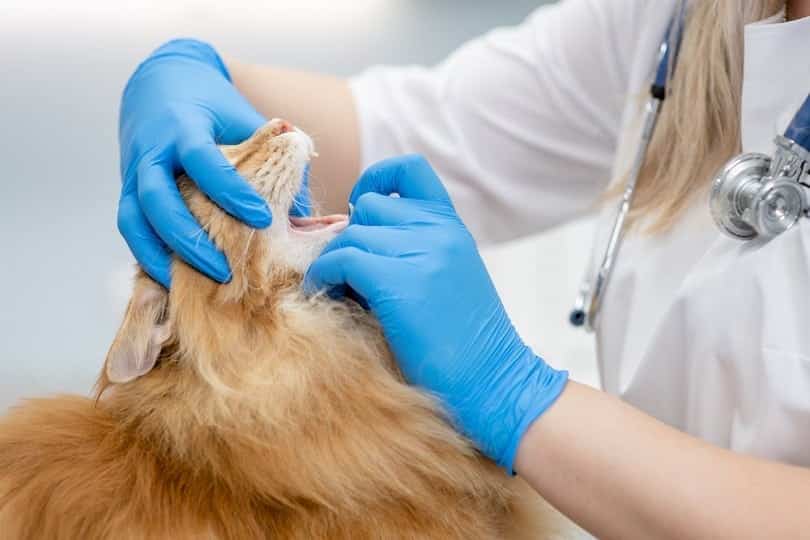

What are the disadvantages of cat teeth cleaning?
The use of anesthesia is the biggest concern about cat dental care. According to the American Animal Hospital Association (AAHA), anesthesia is required to ensure stress-free and pain-free cleaning. It also allows vets to conduct a full examination.
Veterinarians usually perform tests to ensure that cats are healthy enough to be sedated and that they have no health problems that could cause problems during the procedure before they begin. Vital signs such as heart rate, blood pressure and temperature are monitored to ensure safety.
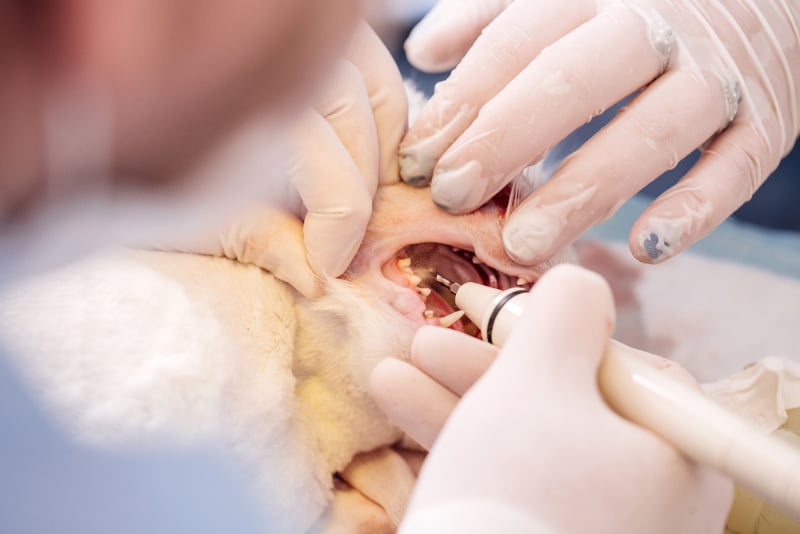

Price Guide
There can be quite a variation in cost when it comes to dental cleanings, as prices depend on factors such as location and the extent of any work required. Veterinarians in big cities often charge more for procedures than those who work in smaller towns and rural areas, so how much pet parents spend can depend a lot on where they live.
| San Diego, California | Chicago, IL | Greenville, SC | Atlanta, GA | New York, New York |
| $473.95 | $424.95 | $380.95 | $408.95 | $491.95 |
Prior assessments included anesthesia, monitoring, and initial blood tests. Costs also vary depending on the type of work required. Standard preventive dental care generally adds up to less than more complex procedures to treat periodontal disease.
Older cats and those suffering from medical conditions often require things like pre-operative blood work which can add to the cost.
Many vets charge separately for x-rays, which are often required to get a good idea of what needs to be done. Exports can quickly raise the price and come with additional costs such as medication.

Frequent questions
How often do cats need dental cleanings?
Veterinarians recommend that cats have their teeth cleaned about once a year. However, pets with severe problems may benefit from more frequent cleanings and some may go longer between visits, particularly if plaque and tartar do not have a chance to build up on their teeth due to regular brushing.
Are there ways to improve the dental health of cats?
Brushing their teeth regularly is perhaps the most important thing pet parents can do at home to support their companions’ dental health. Cat-friendly toothpaste should be used, as human brands contain fluoride and other ingredients that can make cats sick.
Aim for at least two to three sessions per week. There are also diets specifically designed to support dental health, but you should always seek veterinary guidance before changing your cat’s diet.
Dental treats and products that can be added to water can also reduce tartar build-up. Matatabi sticks can keep the cat’s teeth clean and provide entertainment at the same time. Access to fresh water is also vital, as a few sips after eating can wash away food residue.

conclusion
Taking care of cats’ teeth goes a long way in supporting their health and longevity. Regular tooth brushing can reduce tartar build-up on their teeth, which can help prevent the development of gingivitis and painful periodontal disease.
Stimulating their gums can also help encourage optimal dental health, and dental treats and matatabi sticks can be helpful. Special diets are available that support dental health, and dental additives can be added to the water to ensure that the cat’s teeth remain healthy and strong.
Featured Image Credit: Kashaeva Irina, Shutterstock

